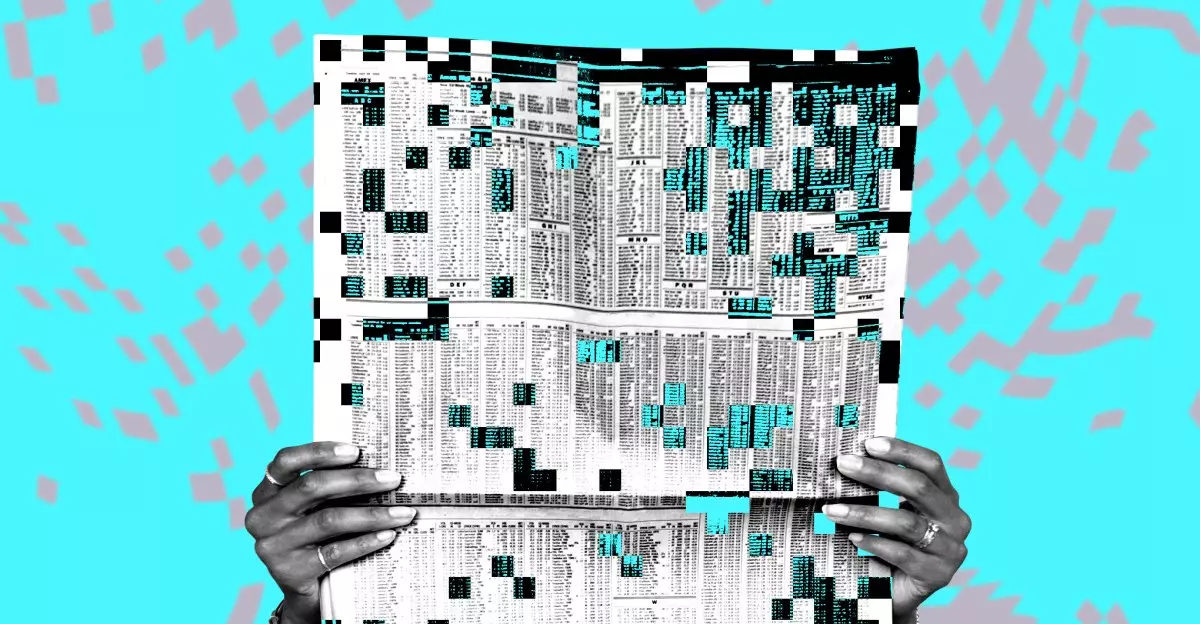In recent months, a significant debate has emerged regarding the ethical use of content by artificial intelligence (AI) systems. This discourse is not just a technical issue; it speaks directly to the heart of creativity, ownership, and fair compensation. Hundreds of prominent publishers in the United States, including giants like The New York Times and The Washington Post, have banded together for a powerful movement called “Support Responsible AI.” This initiative underscores a pressing message: Big Tech must be held accountable for the intellectual property it utilizes in its operations, particularly when it comes to content creation.
Campaign Messages Resonate
The campaign features striking advertisements laden with phrases such as “Keep Watch On AI” and “AI Steals From You Too.” These slogans are more than just catchy phrases; they reflect a profound concern shared by many creators: the unchecked use of their work by AI companies. Too often, content from journalists, artists, and creators is siphoned off without their knowledge or consent, fueling AI models that generate new outputs while stripping original creators of their deserved recognition and revenue. This theft is presented as “un-American”, a term that evokes strong national sentiments about ownership and fairness in the marketplace.
The Role of Government
The crux of the issue lies in the relationship between governance and technology. The ad campaign calls on national leaders to safeguard the rights of content creators by implementing regulations that ensure fair compensation and necessary attribution for their work. This is not merely about monetary gain; it also revolves around respect and acknowledgment of the creative labor that fuels innovation. The News/Media Alliance, which spearheads this effort, emphasizes the need for a balanced ecosystem where AI can thrive responsibly alongside creators.
Danielle Coffey, the Alliance’s President and CEO, articulates a pivotal point. She notes that the media industry does not oppose AI development outright; rather, it seeks to nurture an environment where AI enhances rather than exploits. This notion prompts a critical examination of the technology-fueled landscape where corporations might prioritize profit over principles.
A Global Movement
Interestingly, this initiative is not confined to the US. It echoes similar efforts in the UK, which saw major newspapers launch campaigns underscored by claims like “MAKE IT FAIR.” This international resonance illustrates the universal nature of the struggle against content abuse. The global nature of these campaigns reflects a collective call for fairness, as many nations grapple with the implications of technology on creative industries.
Future Implications for AI and Content
The future of AI and content creation hinges on the outcomes of these campaigns. If significant changes occur, we may witness a new paradigm where AI tools respect intellectual property rights more robustly. This shift could foster a more sustainable and ethical interaction between technology and creative expression, offering a framework that benefits creators, consumers, and tech companies alike.
As the dialogue surrounding AI and content rights continues, it is evident that the voices of creators must be amplified. The current momentum in the media sector is not just a response to technological advancements; it is a declaration that creators will stand firm against exploitation. This awakening holds promise for a future wherein innovation is paired with integrity, ensuring that the fruits of creativity are not only acknowledged but also justly compensated.


Leave a Reply